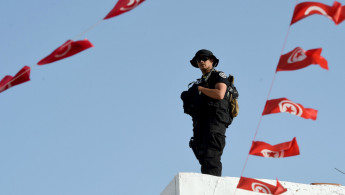UK troops training Tunisian army 'to counter Islamic State'
Britain’s Defence Secretary Michael Farron revealed over the weekend that around 40 British military personnel had travelled to Tunisia in order to provide training on operational planning, intelligence, surveillance and mobile patrolling to help Tunisia monitor illegal cross-border infiltration, particularly along the country’s 460 km-long border with Libya.
The training is set to be led by the 4th Infantry Brigade and will be delivered to around 200 Tunisian army personnel.
“We are determined to support our Tunisian allies to defend against Daesh terrorists who slaughtered innocent Britons on a beach there last year,” said Farron, speaking on Saturday and using the Arabic acronym for the Islamic State group [IS].
“Our training will help Tunisian forces strengthen their border security and stop the spread of Daesh along the coast.”
At least 30 British residents were among 38 people killed in an attack on a beach resort north of the Tunisian coastal city of Sousse in June 2015 claimed by IS.
The announcement marks the third occasion the UK has established a military training initiative in Tunisia since late 2015. According to the British government, to date training has increased the border security capabilities of the Tunisian army.
In September Libya’s defence minister said that around 1,000 Tunisian nationals were fighting with IS in Libya branding them a threat to their home nation.
An additional 3,000 Tunisian nationals are thought to have travelled to Syria and Iraq to take up arms raising further fears of home-grown radicalisation.





 Follow the Middle East's top stories in English at The New Arab on Google News
Follow the Middle East's top stories in English at The New Arab on Google News
![Israeli forces ordered bombed Gaza's Jabalia, ordering residents to leave [Getty]](/sites/default/files/styles/image_330x185/public/2176418030.jpeg?h=a5f2f23a&itok=_YGZaP1z)

